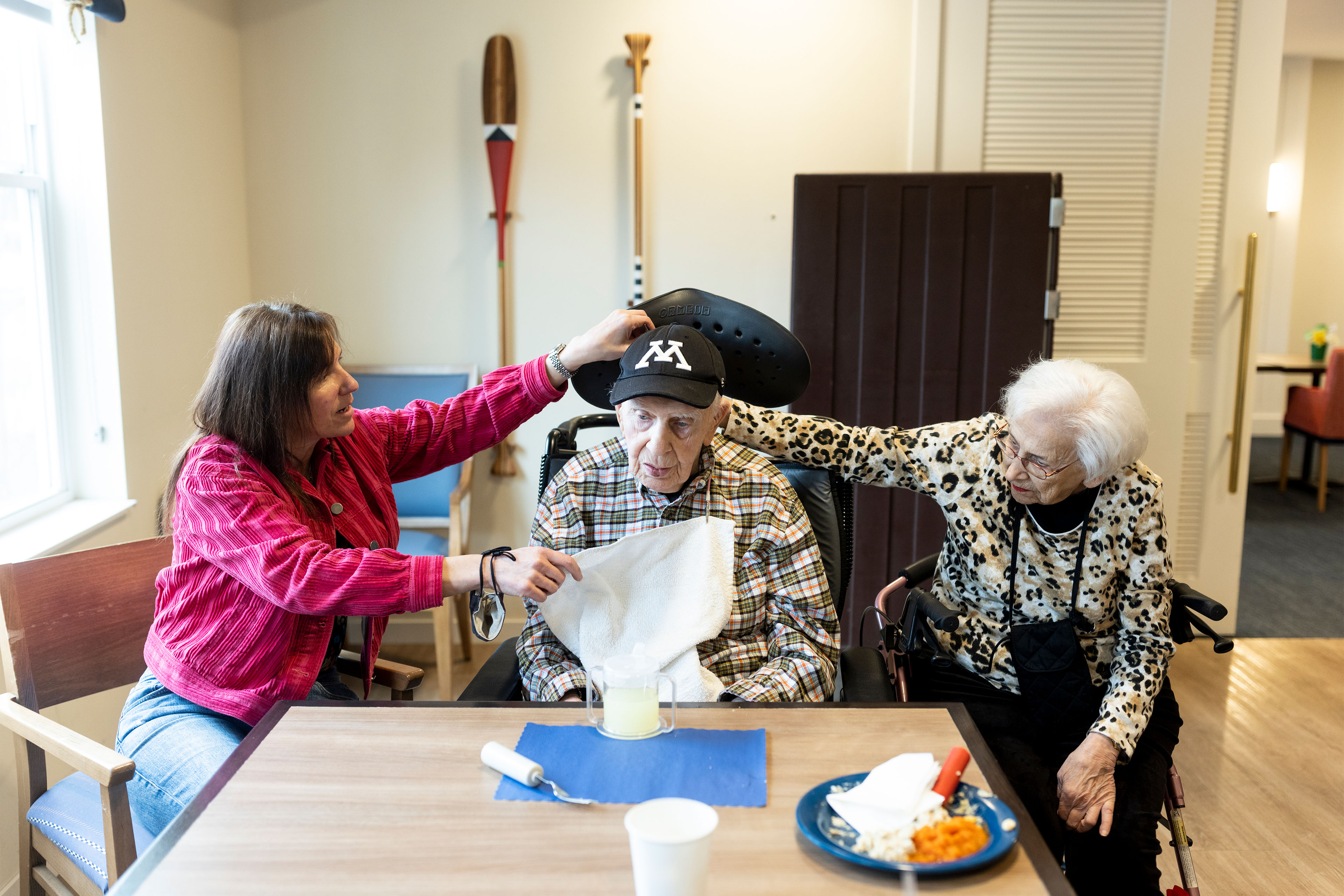Discover the reasons of Assisted Living for seniors needing extra help.
Exactly How Helped Living Facilities Enhance High Quality of Life for Those With Mental deterioration
The integration of engaging programs and family involvement even more enriches the homeowners' experience. The complexities of dementia treatment proceed to evolve, prompting a closer evaluation of exactly how these centers adapt and innovate to satisfy the difficulties faced by citizens and their households.
Personalized Treatment Program
(Dementia Care Charlotte)In many situations, people with mental deterioration call for customized assistance that addresses their distinct requirements and preferences. Customized care plans are necessary in assisted living setups, as they make certain that each resident obtains ideal focus and solutions. These strategies are created collaboratively, entailing medical care specialists, caretakers, and member of the family to produce a detailed introduction of the individual's case history, cognitive abilities, and individual passions.
A well-structured tailored treatment plan usually includes details goals related to wellness monitoring, everyday activities, and social interaction. It makes up the person's cognitive decline while promoting independence and self-respect. Routine assessments and updates to the care plan are essential, as they permit modifications based on the citizen's progressing condition and choices.
Secret elements of these plans often entail drug administration, behavior support techniques, and nutritional standards tailored to the person's requirements (Assisted Living). By concentrating on individualized care, aided living centers can foster an encouraging atmosphere that enhances the high quality of life for people with dementia, inevitably adding to their total wellness and happiness. This customized strategy appreciates the uniqueness of each citizen, ensuring they get the compassionate treatment they require

Engaging Tasks and Programs
Involving citizens in meaningful activities and programs is critical for improving the top quality of life for individuals with mental deterioration. These tasks not only supply enjoyment however additionally stimulate cognitive function and advertise social interaction, which can alleviate sensations of isolation commonly experienced by residents.

Furthermore, individualized programs are important in making sure that each local's unique choices and abilities are recognized. This tailored technique encourages participation, enhances self-esteem, and provides a sense of accomplishment.
Moreover, normal analyses of homeowners' passions can aid personnel customize and adapt activities to better suit advancing demands. By focusing on appealing activities and programs, aided living centers can substantially enhance the general experience and emotional health of people coping with mental deterioration.
Safe and Helpful Environment
Developing a risk-free and helpful environment is essential for people with dementia, as it directly influences their wellness and quality of life. Aided living centers are developed with specific functions that promote safety and security while promoting a complacency and convenience. These environments focus on ease of access, with layouts that decrease confusion and motivate self-reliance, allowing citizens to browse their environments extra conveniently.
Precaution, such as protected entrances and departures, avoid wandering and unapproved access, which are critical factors to consider for individuals with mental deterioration (Assisted Living). Employee are educated to identify the distinct demands of locals, giving tailored assistance and guidance to ensure their safety. The unification of calming colors and acquainted things can help decrease stress and anxiety and disorientation, producing an extra soothing ambience.
In enhancement to physical safety, emotional support is vital. Facilities usually employ personnel that are not just skilled in caregiving however likewise learnt compassion and interaction, fostering count on and connection with citizens. This all natural approach contributes to a nurturing environment where individuals feel valued and comprehended, eventually improving their total top quality of life.
Social Communication and Community
A supportive environment not only prioritizes safety but also cultivates opportunities for social interaction and community engagement, which are vital for individuals with dementia. In assisted living centers, organized activities and communal areas motivate citizens to link with one an additional, minimizing sensations of seclusion commonly experienced by those with cognitive disabilities.
Social communication plays a considerable function in enhancing emotional wellness and cognitive function (Memory Care). Involving with peers in team tasks such as games, arts and crafts, or exercise not just promotes cognitive capabilities but likewise supports a feeling of belonging. Facilities frequently organize occasions that advertise socialization, enabling locals to build relationships and share experiences, which can be specifically advantageous for those with mental deterioration
Additionally, a vibrant neighborhood ambience can boost the general top quality of life for locals. Team member are educated to facilitate communications and support homeowners in creating significant connections. By producing a culture of involvement, assisted living facilities assist individuals with dementia preserve social skills and improve their state of mind, eventually contributing to a much more satisfying life experience. This community-oriented method is necessary in managing the obstacles related to mental deterioration, promoting a sense of objective and continuity for homeowners.
Family Participation and Assistance
Household involvement is essential in sustaining individuals with mental deterioration in assisted living environments. Actively involving member of the family not just offers psychological comfort to homeowners yet also fosters a feeling of belonging and connection in their lives. When families participate in care preparation and everyday activities, they contribute important insights about the person's preferences, background, and requires, which can boost individualized care.
Furthermore, normal family members brows through can dramatically boost the emotional well-being of citizens, minimizing sensations of seclusion and stress and anxiety. Family participants can additionally aid in keeping cognitive function by engaging their enjoyed ones in familiar discussions and tasks. This interaction strengthens individual identity and helps residents feel valued and understood.

Verdict
In final thought, helped living facilities significantly boost the top quality of life for individuals with dementia through individualized treatment plans, involving tasks, and a risk-free environment. These components foster cognitive excitement, emotional health, and a feeling of self-reliance. Normal social interactions and strong family members involvement contribute to meaningful links and emotional assistance. Jointly, these factors develop an alternative approach to care that addresses the special needs of people with dementia, promoting general well-being and dignity.